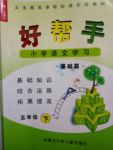��Ŀ����
5������Ҫ��������������еĴ��Ա�����ŵ�ÿһ�������жϣ��������ڸ����ұߺ����ϻ�һ�������̣������д���ÿ��ֻ��һ������������������������ж�һ���ʣ��Ѷ���Ĵ���б�ߣ�\���������ڸ����ұߺ�����д���ôʣ���
Ҳ��б������
����ȱһ���ʣ���ȱ�ʴ���һ��©�ַ��ţ�^�����ڸ����ұߺ�����д���üӵĴʣ�
���д�һ���ʣ��ڴ��Ĵ��»�һ���ߣ��ڸ����ұߺ�����д��������Ĵʣ�
ע�⣺ԭ��û�д��IJ�Ҫ�ģ�
I'm a senior three student��I often do bad in my ��76��bad��Ϊbadly
exams��so I have been trying to catch up the others�� ��77����up���with
But I'm such ��78��such��Ϊso
concerned about my marks that sometimesl cannot eat or sleep well at a night��79��ȥ��a��
I'm afraid that I may get low marks in the tests ��80����
again even if l work hard than before ��81��hard��Ϊharder��
I have no courage to ��82��to��Ϊon
face low marks��I cannot fix my mind to my study��whenever I think of This��It is obvious that the worry had a bad effect on ��83��had��Ϊhas
my school works ��84��works��Ϊwork��
I'm feeling very sad��Would youplease telling me how I should deal with my worry����85��telling��Ϊtell��
���� �����ڱ����н������Լ���ѧϰ�е��������ڿ��Ծ���ʧ���������ߵ����������仯����������ʳ�Ѱ���������������������ѧϰ�����Ժ��ѹ���ϣ���������ṩ
һ�½������ķ�����
��� I'm a senior three student��I often do bad in my exams��so I have been trying to catch up��the others��But I'm such concerned about my marks that sometimesl cannot
badly with so
eat or sleep well at a night��I'm afraid that I may get low marks in the tests again even if l work hard than before�� I have no courage to face low marks��I cannot fix
ȥ�� harder on
my mind to my study��whenever I think of This��It is obvious that the worry had a bad effect on my school works��I'm feeling very sad��Would youplease telling me
on has work tell
how I should deal with my worry��
76��bad��Ϊbadly�����鸱�ʣ������ø���badly����ǰ��Ķ��� do��
77����up���with������̶����䣬catch up with �ǹ̶������Ϊ"����"��
78��such��Ϊso������̶����ͣ���"so��that"��"such��that"�����У�so�Ǹ��ʣ���������ݴʻ���ʽ��such�Ǵ��ʣ������������ʽ���˴�connected�ǹ�ȥ�ִ�����
�ݴʣ�����ǰ��Ӧ����so��
79��ȥ��a������̶��÷���"��ҹ��"ϰ������"at night"����м䲻���κιڴʣ�
80����ȷ
81��hard��Ϊharder�����鸱�ʵıȽϼ������ݺ���ıȽϴ�than��֪ǰ��Ҫ�ñȽϼ���ʽ����Ϊ"����ұ���ǰѧϰ��Ŭ���Ļ�"��
82��to��Ϊon������̶����䣬fix��on����Ϊ"�ѡ������ڣ�ȫ����ע��"���˴�����Ϊ"�Ҳ��ܰ�ע�������е�ѧϰ��"��
83��had��Ϊhas�����鶯�ʵ�ʱ̬����������һ������ʱ������Ϊ the worry������Ҫ�ö��ʵĵ����˳Ƶ�����ʽhas��
84��works��Ϊwork���������ʣ�work��Ϊ"����"���Dz��������ʣ�û�и�����ʽ���ʴ˴���work��
85��telling��Ϊtell������̶����ͣ�Would you please ���������ԭ�Σ�����һ��ί�����������Ϊ"����������"��
���� �ڶ��ĸĴ����У�����Ҫ���������ն��Ĵ��⣬����������ᄈ���������ƽʱ���յĻ���֪ʶ��ϰ���÷����������ȶԶ��Ľ��з������Ա��ҳ����еĴ������ڲ����Ը�����

 Сѧѧϰ�ð���ϵ�д�
Сѧѧϰ�ð���ϵ�д� Сѧͬ�����������ܾ�ϵ�д�
Сѧͬ�����������ܾ�ϵ�д�| A�� | machine | B�� | achieve | C�� | stomach | D�� | technology |
| A�� | cough | B�� | enough | C�� | plough | D�� | rough |
| A�� | had slept | B�� | had been sleeping | ||
| C�� | has slept | D�� | has been sleeping |